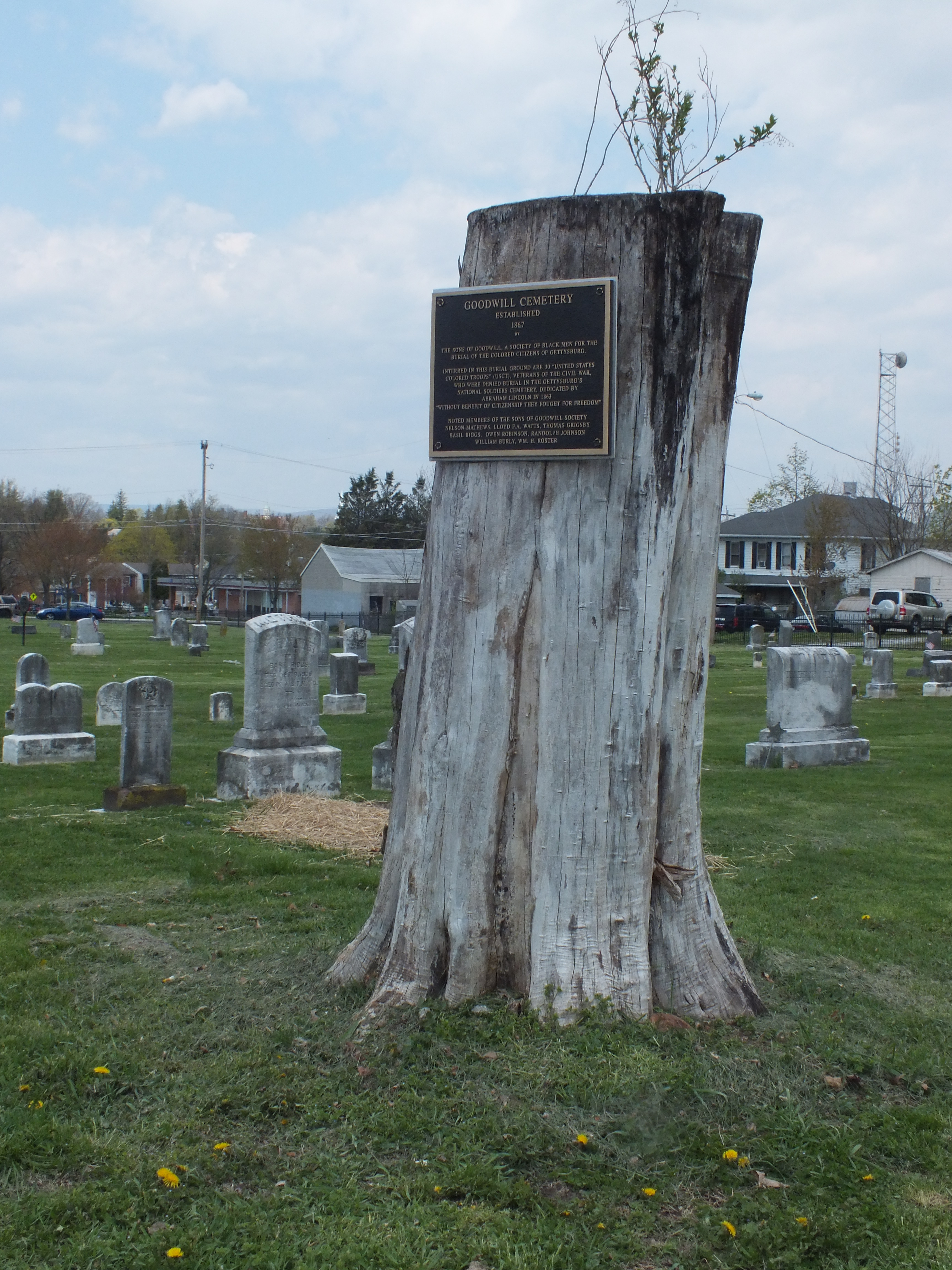
When my older son joined the boy scouts, one of the first camping trips I went on with him was to Gettysburg. We camped on the battlefield, and hiked the "Johnny Reb" and "Billy Yank" trails, following in the footsteps of the soldiers of the Confederate and Union, respectively.
This October, my youngest son arranged that we would camp at the same spot, on one of the last camping trips we would make together. We did some of the same things, but one thing we did differently was a ranger tour of the cemetery and a tour of the town. What an eye opener.
After the battle of Gettysburg the town was in bad shape. The Confederate army fled south after the battle, the the union army pursued them, leaving the town, population 2,400, to deal with the 8,000 bodies left behind, the 3,000 horse carcasses, not to mention 14,000 wounded and 8,000 Confederate prisoners.
People came from all over the country. Many to look among the dead for their loved ones (this is before the age of dog tags, many soldiers were hard to identify), some volunteered to help bury the dead, burn the horses, and tend to the wounded. Many people were sick from the stench. Flies were so numerous they covered entire houses. Every possible building was turned into a field hospital to care for the wounded. One of the churches had to have holes drilled in the floors to drain out the blood because it was getting deep.
For the most part the Union soldiers were buried and the Confederate soldiers were left to rot and be eaten by scavengers, unless their families came and claimed the bodies. The battle happened in July, so it was imperative that things be taken care "quickly". It wasn't until October, when the weather was cooler, that the bodies of Union soldiers were exhumed and moved to the National Cemetery where they have a place of honor today. The Confederates were still left where they fell.
On our camping trip we visited the national cemetery, where a ranger gave us a tour. It was later, walking through town, that we wound up finding the "colored" cemetery. Even though we like to think of the North as fighting for African Americans, the colored troops were not allowed to be buried in the national cemetery, but buried in a not-so-good part of town, in their own cemetery.
And even today, that cemetery is separate, and is along Cemetery Ally, behind an abandoned auto body shop. Gettysburg is a stark reminder that the desecration/denigration of people we don't consider "worthy" is not a new thing.










